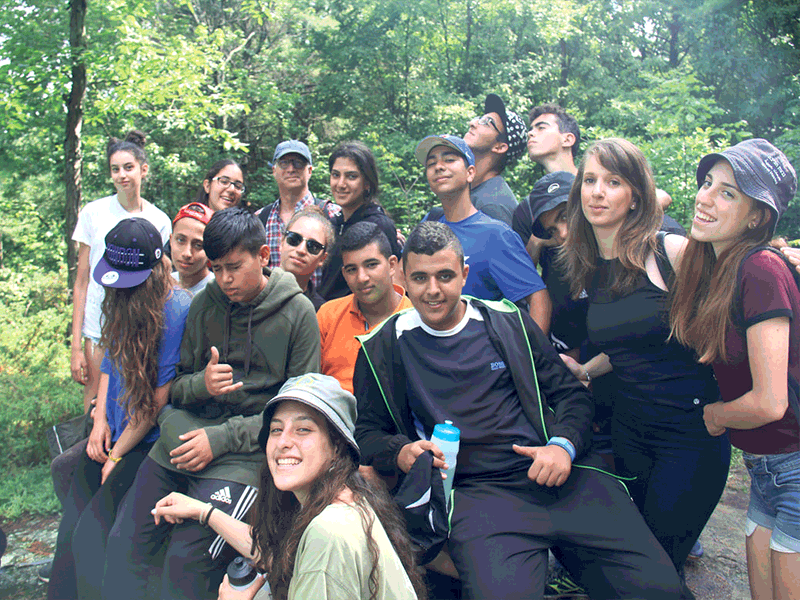Twenty Israeli teenagers – half Jewish and half Arab – recently came to Canada to learn more about one another.
Hosted by Camp Shomria in Perth, Ont., the teenagers are the latest group to participate in Heart to Heart, a program designed to encourage the building of mutual understanding between the often-conflicting communities.
Heart to Heart began in 2011 and was built on the basis of “children teaching children,” said its founder, Yaniv Sagee.
During their two-and-a-half week stay in Canada, the teenagers joined in a dialogue about competing historical narratives, power dynamics and politics.
One of the more contentious discussions revolved around the Israeli anthem, Hatikvah, because of its overtly Hebraic symbolism and yearning for Jewish self-determination, which does not resonate with Arab-Israeli youth.
READ: WHY I – A CANADIAN JEW – BECAME INVESTED IN POLAND’S LATEST FIGHT FOR FREEDOM
“There was always an issue with the Israeli anthem,” Sagee said. While the Arab students normally stood quietly and respected the anthem, recently the group split on the issue. “The Arabs said it did not reflect them, while Jews said it did.”
So the teenagers took the initiative to collaborate on another anthem, one that is more inclusive and reflective of the experiences of Israel’s non-Jewish minority. Nonetheless, Sagee stressed that this was not an attempt to erase Israeli history, or to be iconoclastic.
“It was not a replacement for the Hatikvah, but merely an addition,” he said.
Sagee noted that the program is gaining in credibility. This year, for instance, two of the Arab-Israeli girls participating are daughters of Israeli mayors. One is Mursi Abu Mokh of Baqa al-Gharbiyye, the other is Hassan Atamne of Kfar Kara. Sagee’s daughter, Matar, is also part of the program.
Sagee intentionally chose Canada to host the summer program and serve as the backdrop for such encounters. “Canada has a good background for learning about majority-minority relationships,” he said, adding that Israelis could also learn much about how “diverse societies operate.”
Over the next few years, Sagee hopes to achieve a working relationship with the Israeli government and design a state-level program aimed at building a shared society, because he believes that, “What the children go through, Israelis should go through.”
